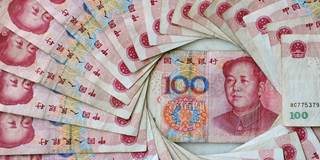For the last year or so, the People's Bank of China has stopped intervening daily in the foreign-exchange market. Whatever challenges it faces, the PBOC must stay the course, and convince markets that China really is committed to a floating exchange-rate regime.
BEIJING – After years of intervening to manage the renminbi’s exchange rate, China’s central bank, the People’s Bank of China (PBOC), is under pressure to float the currency. But striking the right balance between loosening its grip on the exchange rate and maintaining monetary stability will not be easy.
All economics students learn the Mundell-Fleming model, according to which an economy cannot maintain a fixed exchange rate, free capital movement, and an independent monetary policy simultaneously. If a country with a fixed exchange rate and an open capital account tightens monetary policy, in order to contain inflation, the rise in domestic interest rates will give market participants an incentive to borrow foreign currencies and convert them into the domestic currency for investment in domestic assets.
The resulting capital inflows, if persistent, would generate upward pressure on the currency, forcing the central bank, in a bid to maintain exchange-rate stability, to intervene by selling domestic currency, especially for US dollars, until interest rates and the money supply have returned to their original levels.

BEIJING – After years of intervening to manage the renminbi’s exchange rate, China’s central bank, the People’s Bank of China (PBOC), is under pressure to float the currency. But striking the right balance between loosening its grip on the exchange rate and maintaining monetary stability will not be easy.
All economics students learn the Mundell-Fleming model, according to which an economy cannot maintain a fixed exchange rate, free capital movement, and an independent monetary policy simultaneously. If a country with a fixed exchange rate and an open capital account tightens monetary policy, in order to contain inflation, the rise in domestic interest rates will give market participants an incentive to borrow foreign currencies and convert them into the domestic currency for investment in domestic assets.
The resulting capital inflows, if persistent, would generate upward pressure on the currency, forcing the central bank, in a bid to maintain exchange-rate stability, to intervene by selling domestic currency, especially for US dollars, until interest rates and the money supply have returned to their original levels.